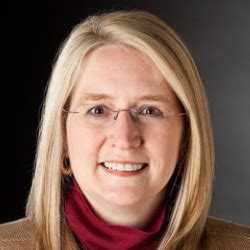A Quote by Michael Connelly
I get into this unfortunate thing when I'm touring for my books. I was in Spain, and the media asked me, 'Who's your favorite Spanish mystery writer?' I'm totally flat-footed. I feel that I'm under-read when it comes to foreign writers.
Related Quotes
Read a lot. But read as a writer, to see how other writers are doing it. And make your knowledge of literature in English as deep and broad as you can. In workshops, writers are often told to read what is being written now, but if that is all you read, you are limiting yourself. You need to get a good overall sense of English literary history, so you can write out of that knowledge.
The running joke about the Premio Cervantes, the most coveted literary prize in the Spanish-speaking world, which was established by Spain's Ministry of Culture in 1976, is that Cervantes himself wouldn't have received it. This is because he was, in his heart, the most anti-Spanish of Spanish writers.
I read reviews and consider myself pretty 'plugged in' to the literary cosmos, yet one of the things I love best about book-touring is the opportunity to compare notes with favorite booksellers around the country. I always come home with books by authors I'd never heard of - or books I've read about but didn't realize I might love.
I was on television a couple of years ago and the reporter asked me, "How does it feel being on mainstream media? It's not often poets get on mainstream media." I said, "Well I think you're the dominant media, the dominant culture, but you're not the mainstream media. The mainstream media is still the high culture of intellectuals: writers, readers, editors, librarians, professors, artists, art critics, poets, novelists, and people who think. They are the mainstream culture, even though you may be the dominant culture."
I would give them (aspiring writers) the oldest advice in the craft: Read and write. Read a lot. Read new authors and established ones, read people whose work is in the same vein as yours and those whose genre is totally different. You've heard of chain-smokers. Writers, especially beginners, need to be chain-readers. And lastly, write every day. Write about things that get under your skin and keep you up at night.
I was a kid who loved to read. I read everything I could get my hands on. I didn't have one favorite book. I had lots of favorite books: 'The Borrowers' by Mary Norton, 'Paddington' by Michael Bond, 'A Little Princess' by Frances Hodgson Burnett, 'Stuart Little' by EB White, 'A Cricket in Times Square,' all the Beverly Cleary books.
We need prizes as publishers... to focus attention on books, for people to know what to go look for. But often in my opinion and in probably everyone's opinion, the right books don't get chosen. Still we need books to be chosen even if they are not exactly the right ones, otherwise many people won't know what to read. As a publisher, I feel prizes are important for the publishing business. But as a writer, I think, writers shouldn't get too distracted by prizes because very often they don't go to the right person. You shouldn't take it too seriously if you haven't won a prize.
I guess I still feel that way and yet I'm slightly hesitant to insist on that idea, that it "better be fun for the writer." Or rather, that if it is, then the pleasure is a sign that it's good. Maybe I feel I've read that somewhere, other writers saying it, and I just think there is possibly no formula, and I don't like to read an interview with a writer where they just lay out the doxa of what quality is. It can seem brittle to do that.



































